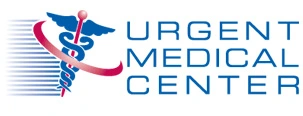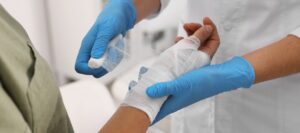Treat yourself at home for Edema.
Edema is the technical term for swelling, which is a normal response to injury or inflammation.  Edema may only be present in one part of the body, or it can impact the entire body. Swelling related to edema can be very severe, and results when small blood vessels become clogged and leak fluids into nearby tissues. This fluid accumulation in nearby tissues causes the swelling. If tissues become too full they will start to “weep” or leak through the skin, because it is the only way for the liquid to escape.
Edema may only be present in one part of the body, or it can impact the entire body. Swelling related to edema can be very severe, and results when small blood vessels become clogged and leak fluids into nearby tissues. This fluid accumulation in nearby tissues causes the swelling. If tissues become too full they will start to “weep” or leak through the skin, because it is the only way for the liquid to escape.
Edema may be caused by pregnancy or an injury, such as a twisted ankle or bad bee sting. It may also be related to a few such as heart disease, low albumin, allergies, critical illness, kidney disease, liver disease, or blood clots.
If you or someone you love is suffering from the discomfort of swollen or weeping feet, here are 9 at-home-remedies for edema you can try today, after you see a physician and find out the cause of the edema.
1. Grapefruit Essential Oil
There are a few ways you can enjoy the benefits of grapefruit essential oil for edema. Since soaking in water is good for edema you can make a nice warm bath with a few drops of the oil. If you don’t want to take a bath, you can fill a bucket for just your feet with a mix of water and oil. Another way to use grapefruit essential oil is to mix it with sweet almond oil or coconut oil to massage your feet, or other swollen areas. Gently massage the enhanced oils applying pressure upwards in a circular motion, this may help get things moving and reduce swelling.
2. Salt Water Soak
Another option you can add to your bathwater or a bucket to soak your feet is Epsom salts. Salts can do wonders in regards to reducing swelling and helping relax muscles.
3. Wear Support Hose
Support hose, also known as compression gear, help reduce and prevent swelling. These are especially beneficial if you spend a lot of time on your feet. Support hose are available in knee and thigh-high as well as full-on compression stockings. Stockings can be somewhat difficult to get on because they are really tight, but they can do wonders for keeping your legs and feet less swollen.
4. Keep Your Feet Elevated
You might not have the chance to kick back with your feet up all day, but you should spend at least some time with your feet in an elevated position. The goal is to get your feet above your heart so that gravity can work its magic and help reduce swelling.
5. Drink Plenty Of Water
The more water you drink the better your body is able to flush out toxins, including excess salt. You should drink around 8-10 glasses of water each day. If you’re not a huge water fan and prefer drinks with more flavors try adding cucumber, lemon, orange or mint to your water. Cucumber and lemon are great options because they contain anti-inflammatory properties.
6. Exercise
There are certain exercises you can do that will help get blood flowing back through your feet, legs or other affected parts of your body. People often get more sedentary with edema but it’s important to keep your body in motion in order to promote better blood flow and reduction of fluid build up. Talk with your doctor about different exercises that are safe for you to do and will help reduce swelling.
7. Dandelion Root
Some people swear by dandelion root tea to help reduce swelling associated with edema. In Europe, it is more widespread to use this as a form of treatment, and dandelion root is even approved by the German Commission E to reduce edema. Few US studies have been conducted on the effectiveness of this treatment, but it can’t hurt to try.
8. Reduce Salt In Your Diet
Soaking your feet in salts may help reduce swelling, but consuming salts will not help, in fact it will only make edema worse. The more salt you consume the more fluid your body will retain, thus increasing issues related to swelling. Check the foods you regularly eat for salt and sodium content, simple diet changes can make a big difference.
9. Check Your Medications
A number of medications can contribute to edema, including:
-NSAIDS (ibuprofen, naproxen)
-Calcium channel blockers
-Corticosteroids
-Pramiprexole
-Pioglitazone
In most cases these medications do not cause edema, and if they do it is usually a very mild case. Always talk to your doctor before discontinuing any of your medications.
10. Keep Swollen Areas Protected
Keep the parts of your body affected by edema safely protected, moisturized, free from injury, and clean. If the skin becomes dry and cracked it is more prone to infection.





